
Lot 58
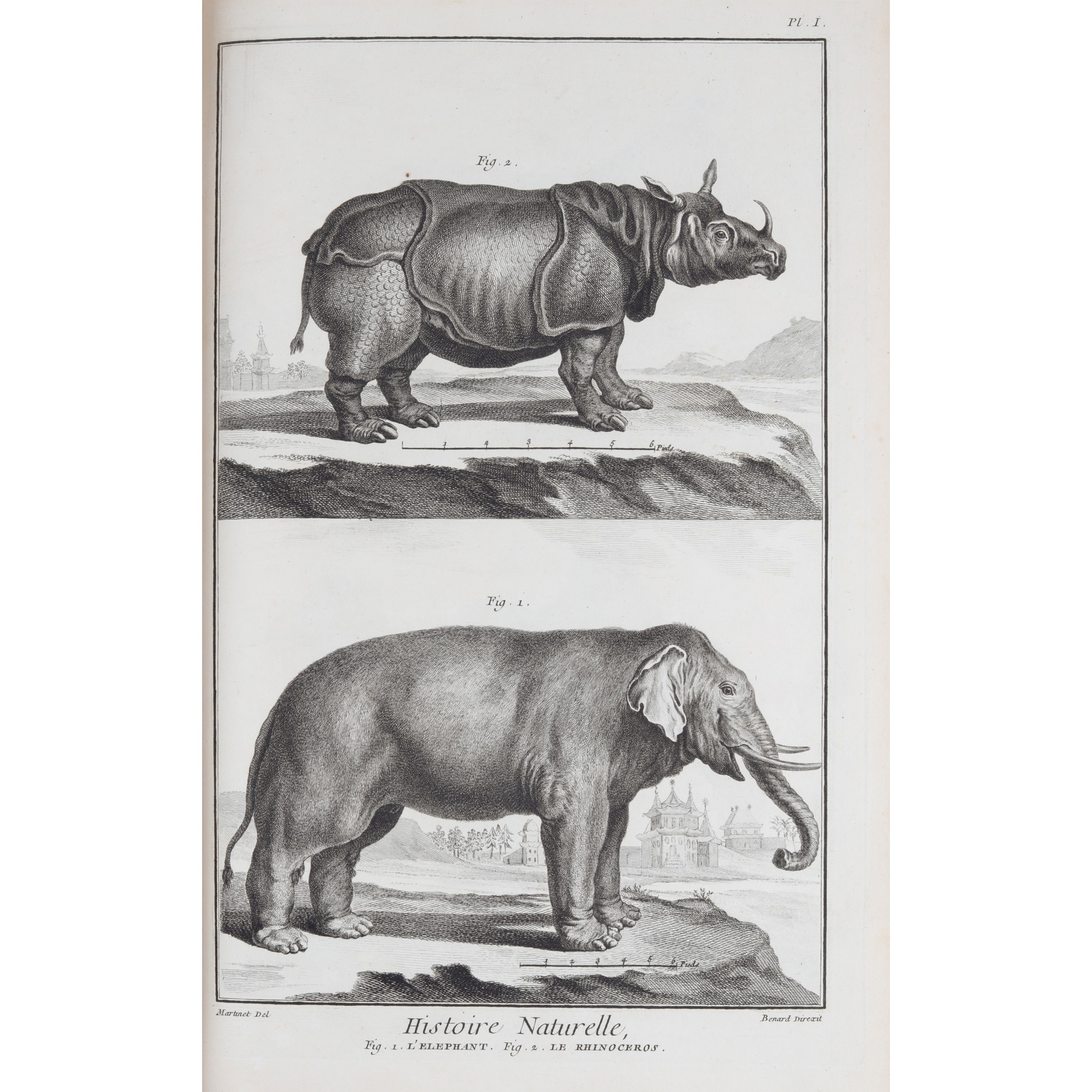
Diderot, Denis - Jean Le Rond D'Alembert
Encyclopédie, ou Dictionnaire, Raisonné des Sciences, des Arts et des Metiers, par une Société de Gens de Lettres




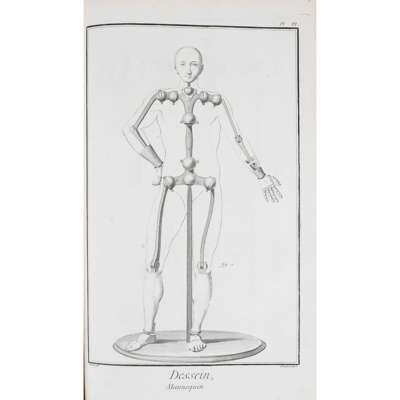


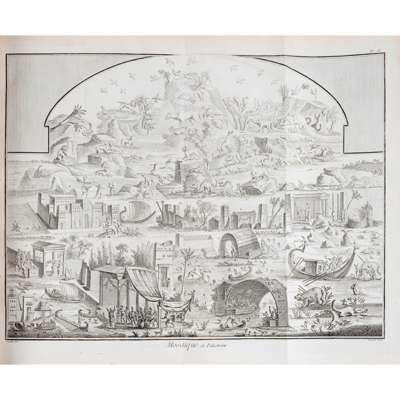

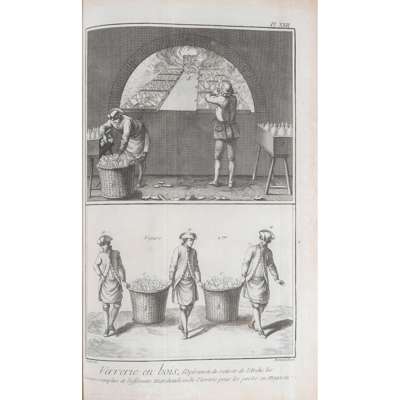


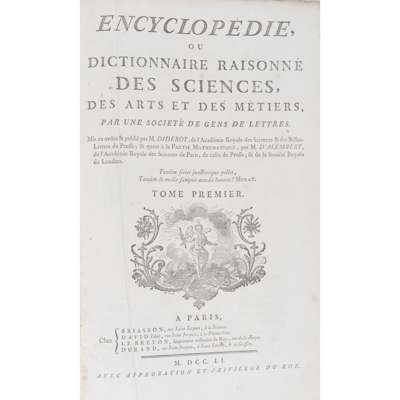





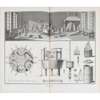
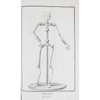
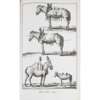

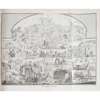
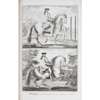
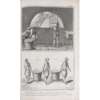

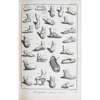



Rare Books, Manuscripts, Maps & Photographs
Auction: Day One: 24 February 2021 | From 10:00
Description
Paris: Chez Briasson, David, Le Breton, Durand / Chez Pancoucke / M.M. Rey, 1751 -1780. First edition, 35 volumes, including Supplements and Index volumes (i.e. 17 text volumes; 11 plate volumes; 2 tables volumes & 5 supplement volumes including supplement plates), folio, engraved frontispiece, 2783 (of 2784?) engraved plates, contemporary mottled calf gilt, red morocco gilt labels and gilt tooling to spines, a little rubbing to some volumes, and a little wear and occasional slight cracking to joints, a few spine labels faded, a few pages slightly creased in places, ink library number to volume 1 half-title and to volume 3 of the supplement, occasional light foxing and light browning to some leaves (35)
Footnote
Note: A "bible of "enlightenment"" according to Denis Diderot's biographer, P.N. Furbank, the Encyclopédie, ou Dictionnaire Raisonné des Sciences, des Arts et des Metiers was first published in 1751. It had been advertised the previous year in a prospectus, promising a 10 volume set (comprising 8 text volumes and 2 plate volumes), with a subscription cost of 280 livres (£14) - or 25 livres per volume for those not willing or able to subscribe to the complete series. The final number of subscriptions totalled an impressive 4000, with an additional 25 volumes, including supplements, being added to the anticipated 10 by 1780.
The Encyclopédie was originally conceived of by the publisher, André le Breton, as a simple translation of Chambers Cyclopaedia from English into French. Denis Diderot, as editor, alongside the mathematician, Jean Le Rond d'Alembert, pushed the work far beyond this and placed the Encyclopédie clearly in the enlightenment tradition of Bacon, Descartes, Newton and Locke. A vast number of 18th century writers contributed to the work and Diderot, as editor, would take their writings and subtly remodel and expand them, aligning them to his own world view. The subscribers - a wealthy collection of people bearing in mind a reasonable salary in the 1750s sat at around £7 - were thus exposed to the notions of religious tolerance and government for the benefit of the masses, woven throughout the text.
The Encyclopédie is credited with delivering a blow against the established church, with its focus on rationalism and science. The work's attitude towards history is more cursory, placing this in "Arts of Memory", and there is a complete absence of biographical articles, unless nestled amongst the description of a location. Furbank writes: "D'Alembert... would say that he and his co-editor had purposely included not the genealogies of great families, but the genealogies of sciences..." Indeed, even after formal suppression of the work by the state in 1759, Diderot managed to continue the surreptitious production of this key work of enlightenment thinking.





























